

Session 1 - NANOSTRUCTURED BIOMATERIALS
Marta Alves - Instituto Superior Técnico, Portugal
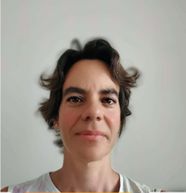 Marta M. Alves completed her course on Chemistry in 2003 at the Universidade de Lisboa Instituto Superior Técnico and earned her PhD in Biochemistry in 2010 at Universidade Nova de Lisboa Instituto de Tecnologia Química e Biológica. She currently works as a researcher at Associação do Instituto Superior Técnico para a Investigação e Desenvolvimento. She has published almost 50 peer-reviewed manuscripts, supervised numerous MSc and PhD theses, and supported several short-term fellowships. Her primary research area is bio-functional materials, which involve creating bio-based materials that promote well-being and support the development of eco-friendlier materials to facilitate greener societal transitions.
Marta M. Alves completed her course on Chemistry in 2003 at the Universidade de Lisboa Instituto Superior Técnico and earned her PhD in Biochemistry in 2010 at Universidade Nova de Lisboa Instituto de Tecnologia Química e Biológica. She currently works as a researcher at Associação do Instituto Superior Técnico para a Investigação e Desenvolvimento. She has published almost 50 peer-reviewed manuscripts, supervised numerous MSc and PhD theses, and supported several short-term fellowships. Her primary research area is bio-functional materials, which involve creating bio-based materials that promote well-being and support the development of eco-friendlier materials to facilitate greener societal transitions.
Besides her research work, Marta M. Alves has also been involved in other areas. She has served as a reviewer of scientific articles and projects, as a Managing and Guest Editor of a high-impact journal in the field, and as an organizer of scientific meetings. Additionally, she is a member of the executive committee of her research center, Centro de Química Estrutural (CQE).
Wojciech Simka - Silesian University of Technology
 Prof. Wojciech Simka is an employee of the Faculty of Chemistry of the Silesian University of Technology. He is the head of the Department of Inorganic Chemistry,, Analytical Chemistry and Electrochemistry, the head of the Corrosion Testing Laboratory, and the chairman of the Chemical Engineering Discipline Board. He is or was the manager of research projects financed by the Ministry of Science and Higher Education, the National Science Centre, and the National Centre for Research and Development. His scientific interests are related to the modification of the surface layer of metals with electrochemical methods, in particular in terms of biomedical applications. He focuses on electrochemical oxidation, both classical and high-voltage (plasma electrolytic oxidation, PEO), of materials based on titanium, tantalum, zirconium, niobium and magnesium. Currently, he focusses on plasma electrochemical oxidation of titanium printed implants (personalised and scaffolds). He is the author of over 150 articles listed in JCR, as well as several patents. The solutions developed by his team have been implemented in several industrial plants in Poland.
Prof. Wojciech Simka is an employee of the Faculty of Chemistry of the Silesian University of Technology. He is the head of the Department of Inorganic Chemistry,, Analytical Chemistry and Electrochemistry, the head of the Corrosion Testing Laboratory, and the chairman of the Chemical Engineering Discipline Board. He is or was the manager of research projects financed by the Ministry of Science and Higher Education, the National Science Centre, and the National Centre for Research and Development. His scientific interests are related to the modification of the surface layer of metals with electrochemical methods, in particular in terms of biomedical applications. He focuses on electrochemical oxidation, both classical and high-voltage (plasma electrolytic oxidation, PEO), of materials based on titanium, tantalum, zirconium, niobium and magnesium. Currently, he focusses on plasma electrochemical oxidation of titanium printed implants (personalised and scaffolds). He is the author of over 150 articles listed in JCR, as well as several patents. The solutions developed by his team have been implemented in several industrial plants in Poland.
Agnieszka Kyzioł - Jagiellonian University, Faculty of Chemistry
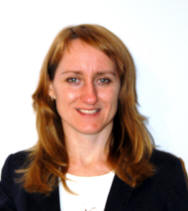 Agnieszka Kyzioł is an Associate Professor at the Faculty of Chemistry of the Jagiellonian University in Kraków, Poland. She completed her MSc (2002), PhD (2007), and DSc (2018) in Chemistry (Jagiellonian University). She is a researcher in the Coordination and Bioinorganic Physicochemistry Group at the Faculty of Chemistry UJ. She is co-author of over 60 scientific articles published in reputable journals on the Philadelphia list (> 2000 citations, index H 23), book chapters, and two international patents. She is Laureate of projects of the Foundation for Polish Science and the National Science Center. She is a Member of Committee Management of COST Action CA21164 (2022-2026) and a Deputy Chairman of the Polish Association of Natural Science Teachers (since 2019). She is supervisor of numerous BSc and MSc theses, auxiliary PhD supervisor, and reviewer of European Doctorates in the field of Chemical Sciences. Her particular research fields are Bioinorganic and Biomedical Chemistry, Advanced Functional Materials, Nanochemistry, Coordination and Organometallic Chemistry. The main research topic concerns nanosystems containing metal nanoparticles and metal coordination compounds in the fight against drug resistance. Particular scientific interests focus on design, synthesis, physicochemical characterization, and biological evaluation (in vitro) of advanced hybrid organic-inorganic functional materials for their use in innovative health and environmental protection strategies.
Agnieszka Kyzioł is an Associate Professor at the Faculty of Chemistry of the Jagiellonian University in Kraków, Poland. She completed her MSc (2002), PhD (2007), and DSc (2018) in Chemistry (Jagiellonian University). She is a researcher in the Coordination and Bioinorganic Physicochemistry Group at the Faculty of Chemistry UJ. She is co-author of over 60 scientific articles published in reputable journals on the Philadelphia list (> 2000 citations, index H 23), book chapters, and two international patents. She is Laureate of projects of the Foundation for Polish Science and the National Science Center. She is a Member of Committee Management of COST Action CA21164 (2022-2026) and a Deputy Chairman of the Polish Association of Natural Science Teachers (since 2019). She is supervisor of numerous BSc and MSc theses, auxiliary PhD supervisor, and reviewer of European Doctorates in the field of Chemical Sciences. Her particular research fields are Bioinorganic and Biomedical Chemistry, Advanced Functional Materials, Nanochemistry, Coordination and Organometallic Chemistry. The main research topic concerns nanosystems containing metal nanoparticles and metal coordination compounds in the fight against drug resistance. Particular scientific interests focus on design, synthesis, physicochemical characterization, and biological evaluation (in vitro) of advanced hybrid organic-inorganic functional materials for their use in innovative health and environmental protection strategies.
Session 2 - NANOMATERIALS FOR ENERGY CONVERSION AND STORAGE
Camelia Matei Ghimbeu - Institut de Science des Matériaux de Mulhouse (IS2M)
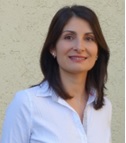 Dr. Camélia Matei Ghimbeu is a Research Director at Material Science Institute in Mulhouse (IS2M), CNRS, France. She received in 2007 her PhD from University of Metz, France and TU Delft, The Netherlands and her Habilitation in 2015 from University of Haute Alsace, France. She was awarded in 2017 the CNRS Bronze Medal, in 2018 the Award "Solid-State Chemistry Division" (French Chemistry Society) and in 2019 the award Guy Ourisson (Gutenberg Cercle), for her research works devoted to the design of carbon-based materials with controlled characteristics for energy storage and environmental applications (water and air decontamination). Author of 115 articles and about 150 communications, she is leading the “Carbon and Hybrid Materials” group at IS2M, she is member of French network of Electrochemical Storage of Energy (RS2E) and member of National Committee for Scientific Research (CoNRS), section 15 (chemistry of materials, nanomaterials and processes).
Dr. Camélia Matei Ghimbeu is a Research Director at Material Science Institute in Mulhouse (IS2M), CNRS, France. She received in 2007 her PhD from University of Metz, France and TU Delft, The Netherlands and her Habilitation in 2015 from University of Haute Alsace, France. She was awarded in 2017 the CNRS Bronze Medal, in 2018 the Award "Solid-State Chemistry Division" (French Chemistry Society) and in 2019 the award Guy Ourisson (Gutenberg Cercle), for her research works devoted to the design of carbon-based materials with controlled characteristics for energy storage and environmental applications (water and air decontamination). Author of 115 articles and about 150 communications, she is leading the “Carbon and Hybrid Materials” group at IS2M, she is member of French network of Electrochemical Storage of Energy (RS2E) and member of National Committee for Scientific Research (CoNRS), section 15 (chemistry of materials, nanomaterials and processes).
Kostiantyn Kravchyk - ETH Zurich and Empa - Swiss Federal Laboratories for Materials Science and Technology
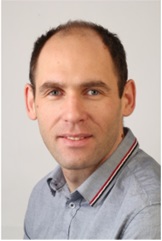 Kostiantyn Kravchyk, born in 1982, grew up in Ukraine (Bukovyna region). He studied chemistry at Chernivtsi National University and then continued his studies at Vernadsky Institute of General and Inorganic Chemistry of the Ukrainian National Academy of Sciences (Ph.D. in 2008 with Prof. Dr. Anatolii G. Belous; thesis topic: nanocrystalline oxygen-conductive materials based on doped-ZrO2). Subsequently, he completed postdoctoral research at University of Le Mans (France), University of Nantes (France), and ETH Zurich and Empa (Swiss Federal Laboratories for Materials Science and Technology). He now works as a senior scientist at Empa and ETH Zurich in the Functional Inorganic Materials group of Prof. Maksym Kovalenko. His research interests include novel concepts for electrochemical energy storage and novel materials for Li-ion and post-Li-ion rechargeable batteries
Kostiantyn Kravchyk, born in 1982, grew up in Ukraine (Bukovyna region). He studied chemistry at Chernivtsi National University and then continued his studies at Vernadsky Institute of General and Inorganic Chemistry of the Ukrainian National Academy of Sciences (Ph.D. in 2008 with Prof. Dr. Anatolii G. Belous; thesis topic: nanocrystalline oxygen-conductive materials based on doped-ZrO2). Subsequently, he completed postdoctoral research at University of Le Mans (France), University of Nantes (France), and ETH Zurich and Empa (Swiss Federal Laboratories for Materials Science and Technology). He now works as a senior scientist at Empa and ETH Zurich in the Functional Inorganic Materials group of Prof. Maksym Kovalenko. His research interests include novel concepts for electrochemical energy storage and novel materials for Li-ion and post-Li-ion rechargeable batteries
Krzysztof Fic - Poznan University of Technology
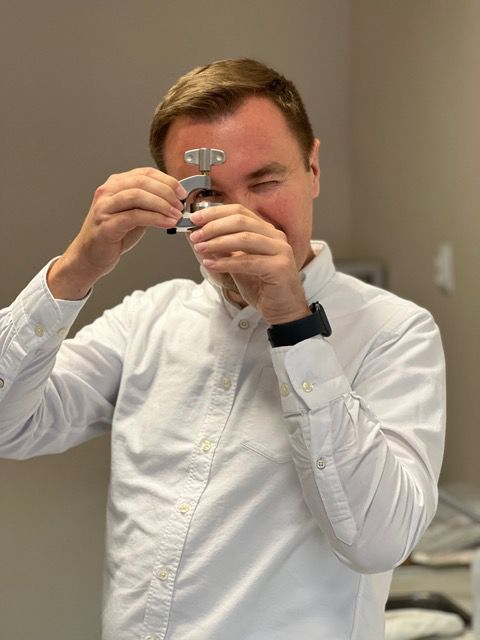 Krzysztof Fic graduated in Chemical Process Engineering at the Faculty of Chemical Technology, Poznan University of Technology, Poland. His research activities focus mainly on the electrochemical systems for the energy conversion and storage, in particular on phenomena occurring at the electrode/electrolyte interface. Ph.D. dissertation of Krzysztof Fic was defended on 5th June 2012. Since 1st October 2012, he is employed at the Institute of Chemistry and Technical Electrochemistry of Poznan University of Technology. In 2013 – 2015 he spent six months in Solvay company (Brussels, Belgium) serving as an Experienced Researcher in the Energy Caps project within IAPP Marie Curie Action. In 2013-2015, he managed two scientific projects founded by Polish Ministry of Science and Higher Education and National Centre for Research and Development. At the same time, he was the manager and researcher in two European Projects. In July 2015 he was selected by French Embassy in Warsaw for a one-month research stay in France as an award for his scientific achievements; then, in February 2016, he visited the Institut de Science des Matériaux de Mulhouse, where under the supervision of Dr. Camelia Ghimbeu he was trained in the advanced characterization of carbon materials. Krzysztof Fic is the co-author of more than 70 papers indexed in ISI Master Journal List. His H-index is 22, and citation number approaches 2200 records (excl. self-citations). He is also co-author of 21 patents and 12 patent applications. He presented more than 60 oral communications and 16 posters during national and international conferences, in Europe, U.S., Mexico, Brazil, Japan, South Korea, Hong Kong, Taiwan, China and Australia. A number of oral communications and posters he has co-authored is even greater. Krzysztof Fic is an active member of national and international organizations including the Polish Carbon Society, the International Society of Electrochemistry, American Chemical Society, the Electrochemical Society and Material Research Society. Since December 2016 he served as a Member of Polish Young Academy at Polish Academy of Sciences. He served as a scientific supervisor in two projects funded by National Science Centre. Moreover, he serves as researcher and an executive manager of the Polish-Swiss Research Programme (PSPB 107/2010) realized in cooperation between Institute of Chemistry and Technical Electrochemistry (Poznan University of Technology) and Paul Scherrer Institute (Villigen, Switzerland) concerning in-situ investigations of next generation electrochemical capacitors. Recently, he is a Principal Investigator in Starting Grant, founded by European Research Council (2017-2023) and Marie Skłodowska-Curie Actions - Doctoral Networks (2023-2027) funded by European Commission.
Krzysztof Fic graduated in Chemical Process Engineering at the Faculty of Chemical Technology, Poznan University of Technology, Poland. His research activities focus mainly on the electrochemical systems for the energy conversion and storage, in particular on phenomena occurring at the electrode/electrolyte interface. Ph.D. dissertation of Krzysztof Fic was defended on 5th June 2012. Since 1st October 2012, he is employed at the Institute of Chemistry and Technical Electrochemistry of Poznan University of Technology. In 2013 – 2015 he spent six months in Solvay company (Brussels, Belgium) serving as an Experienced Researcher in the Energy Caps project within IAPP Marie Curie Action. In 2013-2015, he managed two scientific projects founded by Polish Ministry of Science and Higher Education and National Centre for Research and Development. At the same time, he was the manager and researcher in two European Projects. In July 2015 he was selected by French Embassy in Warsaw for a one-month research stay in France as an award for his scientific achievements; then, in February 2016, he visited the Institut de Science des Matériaux de Mulhouse, where under the supervision of Dr. Camelia Ghimbeu he was trained in the advanced characterization of carbon materials. Krzysztof Fic is the co-author of more than 70 papers indexed in ISI Master Journal List. His H-index is 22, and citation number approaches 2200 records (excl. self-citations). He is also co-author of 21 patents and 12 patent applications. He presented more than 60 oral communications and 16 posters during national and international conferences, in Europe, U.S., Mexico, Brazil, Japan, South Korea, Hong Kong, Taiwan, China and Australia. A number of oral communications and posters he has co-authored is even greater. Krzysztof Fic is an active member of national and international organizations including the Polish Carbon Society, the International Society of Electrochemistry, American Chemical Society, the Electrochemical Society and Material Research Society. Since December 2016 he served as a Member of Polish Young Academy at Polish Academy of Sciences. He served as a scientific supervisor in two projects funded by National Science Centre. Moreover, he serves as researcher and an executive manager of the Polish-Swiss Research Programme (PSPB 107/2010) realized in cooperation between Institute of Chemistry and Technical Electrochemistry (Poznan University of Technology) and Paul Scherrer Institute (Villigen, Switzerland) concerning in-situ investigations of next generation electrochemical capacitors. Recently, he is a Principal Investigator in Starting Grant, founded by European Research Council (2017-2023) and Marie Skłodowska-Curie Actions - Doctoral Networks (2023-2027) funded by European Commission.
Session 3 - SYNTHESIS AND APPLICATIONS OF NANOMATERIALS
Joanna Ortyl - Krakow University of Technology
 Joanna Ortyl is a Professor in the Faculty of Chemical Engineering and Technology at Cracow University of Technology (Poland). She is also a CEO and Co-owner of PhotoHiTech Ltd. (Cracow, Poland), which has specialized in developing and producing one component of cationic photoinitiators working in visible light since 2013. She received her PhD degree in Chemistry (speciality in Photochemistry) in 2012 from Cracow University of Technology. She worked as a post-doctoral researcher under Prof. Dr Thomas Jüstel at Müenster University of Applied Sciences in the Institute for Optical Technologies (Germany). She also completed a Master of Business Economics (MBE) course at the Haas School of Business at the University of California, Berkeley (USA). She worked as a Visiting Professor in Prof. Jacques Lalevée's group in Institute de Science des Matériaux de Mulhouse in 2015, 2016, and 2019. Her research is always based on organic chemistry, the photochemistry of small molecules, and the photochemistry of polymerization processes, but always correlated with practical applications. She is an inventor with more than 30 patents and has received more than 50 international and national awards for her research. She is a laureate of the Rector's Award of the Cracow University of Technology for 2017, as well as a manager of scientific projects funded by the Foundation for Polish Science, the National Science Centre, or the National Centre for Research and Development (she was or is currently a manager of OPUS-NCN, OPUS LAP-NCN, Ventures-FNP, Sonata-NCN, Powroty-FNP, Lider-NCBiR, Team Tech-FNP, TANGO 2-NCBiR projects). She is a scientific supervisor of students and PhD students realizing their scientific projects such as Diamond Grant - MNiSW (3 projects), Prelude - NCN (4 projects).
Joanna Ortyl is a Professor in the Faculty of Chemical Engineering and Technology at Cracow University of Technology (Poland). She is also a CEO and Co-owner of PhotoHiTech Ltd. (Cracow, Poland), which has specialized in developing and producing one component of cationic photoinitiators working in visible light since 2013. She received her PhD degree in Chemistry (speciality in Photochemistry) in 2012 from Cracow University of Technology. She worked as a post-doctoral researcher under Prof. Dr Thomas Jüstel at Müenster University of Applied Sciences in the Institute for Optical Technologies (Germany). She also completed a Master of Business Economics (MBE) course at the Haas School of Business at the University of California, Berkeley (USA). She worked as a Visiting Professor in Prof. Jacques Lalevée's group in Institute de Science des Matériaux de Mulhouse in 2015, 2016, and 2019. Her research is always based on organic chemistry, the photochemistry of small molecules, and the photochemistry of polymerization processes, but always correlated with practical applications. She is an inventor with more than 30 patents and has received more than 50 international and national awards for her research. She is a laureate of the Rector's Award of the Cracow University of Technology for 2017, as well as a manager of scientific projects funded by the Foundation for Polish Science, the National Science Centre, or the National Centre for Research and Development (she was or is currently a manager of OPUS-NCN, OPUS LAP-NCN, Ventures-FNP, Sonata-NCN, Powroty-FNP, Lider-NCBiR, Team Tech-FNP, TANGO 2-NCBiR projects). She is a scientific supervisor of students and PhD students realizing their scientific projects such as Diamond Grant - MNiSW (3 projects), Prelude - NCN (4 projects).
Joanna Niedziółka-Jönsson - Institute of Physical Chemistry, Polish Academy of Sciences
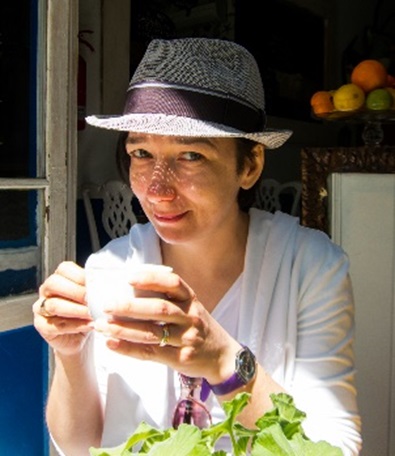 Professor Joanna Niedziółka-Jönsson, chemist, since 2012 leader of the Surface Nanoengineering research group at the Institute of Physical Chemistry, Polish Academy of Sciences. Her scientific interests are focused on analytical chemistry, and in particular surface modification of electrodes with the aim of creating new chemical and biochemical sensors. For this purpose, it is necessary to search for new materials and / or modify their surface properties and apply appropriate detection methods. The synthesis and modification of metallic nanoparticles is of particular importance because these can be used as optical signal transducers due to their localized surface plasmon resonance, connecting chemical processes with detection techniques such as fluorescence microscopy, UV-spectrophotometry or surface-enhanced Raman spectroscopy. Lately much of her work has been directed to the study of plasmonic properties of nanomaterials to expand this toolbox. Prof. Niedziółka-Jönsson is co-author of more than 110 publication, 8 patents, recipient of scholarships from the Foundation for Polish Science, the Ministry of Science and Higher Education and was awarded with the Wojciech Świętosławski prize of 2nd degree in 2017.
Professor Joanna Niedziółka-Jönsson, chemist, since 2012 leader of the Surface Nanoengineering research group at the Institute of Physical Chemistry, Polish Academy of Sciences. Her scientific interests are focused on analytical chemistry, and in particular surface modification of electrodes with the aim of creating new chemical and biochemical sensors. For this purpose, it is necessary to search for new materials and / or modify their surface properties and apply appropriate detection methods. The synthesis and modification of metallic nanoparticles is of particular importance because these can be used as optical signal transducers due to their localized surface plasmon resonance, connecting chemical processes with detection techniques such as fluorescence microscopy, UV-spectrophotometry or surface-enhanced Raman spectroscopy. Lately much of her work has been directed to the study of plasmonic properties of nanomaterials to expand this toolbox. Prof. Niedziółka-Jönsson is co-author of more than 110 publication, 8 patents, recipient of scholarships from the Foundation for Polish Science, the Ministry of Science and Higher Education and was awarded with the Wojciech Świętosławski prize of 2nd degree in 2017.
Katarzyna Matras-Postołek - Krakow University of Technology
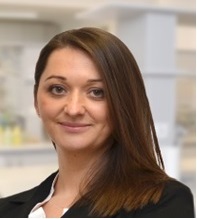 prof. Katarzyna Matras-Postołek, chemist by education, graduate of Cracow University of Technology (CUT). In 2006-2012, she worked as a scientist at Münster University of Applied Sciences in the Institute for Optical Technologies in Germany. In 2010 she completed Ph.D. at CUT. In 2013, after almost 7 years of work in Germany, she returned to Poland to CUT. In 2019 she obtained her habilitation in chemistry. Currently, Katarzyna Matras-Postołek works as professor at the Faculty of Chemical Engineering and Technology, CUT. Since 2019 she is Vice-Dean for Evaluation and International Cooperation at Faculty of Chemical Engineering and Technology and Member of the Research Excellence Council of CUT. Katarzyna Matras-Postołek’s research interests focus on broadly-defined subjects related to functional nanomaterials including semiconductor nanocrystals and their potential application in optoelectronics and photocatalysis. Katarzyna Matras-Postołek has received a number of scholarships, e.g. for outstanding young scientists in Poland (2016). In 2015, she was awarded the TOP 500 Innovators program in Poland within she took part in a 9-week internship at University of California, Berkeley, USA. Since 2014, she is a visiting professor at University of Jinan, China. Since 2019 she is a scientific member of international AMPERE organization. Author of 67 publications from the Philadelphia list, summary, Index Hirsch 17, principal investigator of 7 projects (funded by the Foundation for Polish Science, the National Science Centre and the National Centre for Research and Development), co-author of 7 patent applications, including 3 international.
prof. Katarzyna Matras-Postołek, chemist by education, graduate of Cracow University of Technology (CUT). In 2006-2012, she worked as a scientist at Münster University of Applied Sciences in the Institute for Optical Technologies in Germany. In 2010 she completed Ph.D. at CUT. In 2013, after almost 7 years of work in Germany, she returned to Poland to CUT. In 2019 she obtained her habilitation in chemistry. Currently, Katarzyna Matras-Postołek works as professor at the Faculty of Chemical Engineering and Technology, CUT. Since 2019 she is Vice-Dean for Evaluation and International Cooperation at Faculty of Chemical Engineering and Technology and Member of the Research Excellence Council of CUT. Katarzyna Matras-Postołek’s research interests focus on broadly-defined subjects related to functional nanomaterials including semiconductor nanocrystals and their potential application in optoelectronics and photocatalysis. Katarzyna Matras-Postołek has received a number of scholarships, e.g. for outstanding young scientists in Poland (2016). In 2015, she was awarded the TOP 500 Innovators program in Poland within she took part in a 9-week internship at University of California, Berkeley, USA. Since 2014, she is a visiting professor at University of Jinan, China. Since 2019 she is a scientific member of international AMPERE organization. Author of 67 publications from the Philadelphia list, summary, Index Hirsch 17, principal investigator of 7 projects (funded by the Foundation for Polish Science, the National Science Centre and the National Centre for Research and Development), co-author of 7 patent applications, including 3 international.
WORKSHOP SESSION
Monika Gołda-Cępa
 Dr Monika Golda-Cepa is a biotechnologist who obtained her doctoral title in Chemistry at Jagiellonian University where she now works as an assistant professor. Her main research focus is on biomaterials surfaces and understanding the complex interactions at bio-interfaces, relevant to the development of novel biomaterials.
Dr Monika Golda-Cepa is a biotechnologist who obtained her doctoral title in Chemistry at Jagiellonian University where she now works as an assistant professor. Her main research focus is on biomaterials surfaces and understanding the complex interactions at bio-interfaces, relevant to the development of novel biomaterials.
Since 2019 she is managing editor at Applied Surface Science (Elsevier) at the forefront of the publishing process, responsible for the pre-screening of the manuscripts.
Electrochemical workshop
Workshop title: Practical aspects of electrochemical techniques used in various types of experiments

Jerome Babauta
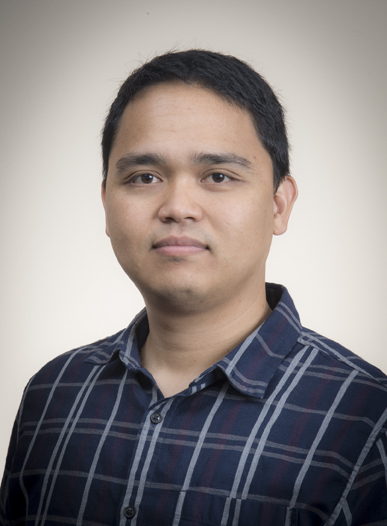 Jerome Babauta received a Ph.D. in Chemical Engineering at Washington State University (Pullman WA, USA) studying electron transfer in microbial biofilms. As a part of the graduation requirement, Jerome held a summer internship with Gamry Instruments in 2012 where he learned to appreciate the instrumentation behind electrochemical measurement. Jerome’s expertise is in both biofilm engineering and the application of electrochemical techniques to study electrochemically active biofilms. He has used microsensors, rotating electrodes, and quartz crystal microbalance in combination with electrochemical impedance spectroscopy to correlate impedance with biofilm growth in situ. He has published several papers on this topic and is also a co-editor on a book covering this topic: “Biofilms in Bioelectrochemical Systems: From Laboratory Practice to Data Interpretation”. Currently, his primary interest is in understanding the impedance of electrochemically active biofilms. Within Gamry, Jerome spends most of his day discussing the art of electrochemical measurement for a wide range of applications.
Jerome Babauta received a Ph.D. in Chemical Engineering at Washington State University (Pullman WA, USA) studying electron transfer in microbial biofilms. As a part of the graduation requirement, Jerome held a summer internship with Gamry Instruments in 2012 where he learned to appreciate the instrumentation behind electrochemical measurement. Jerome’s expertise is in both biofilm engineering and the application of electrochemical techniques to study electrochemically active biofilms. He has used microsensors, rotating electrodes, and quartz crystal microbalance in combination with electrochemical impedance spectroscopy to correlate impedance with biofilm growth in situ. He has published several papers on this topic and is also a co-editor on a book covering this topic: “Biofilms in Bioelectrochemical Systems: From Laboratory Practice to Data Interpretation”. Currently, his primary interest is in understanding the impedance of electrochemically active biofilms. Within Gamry, Jerome spends most of his day discussing the art of electrochemical measurement for a wide range of applications.